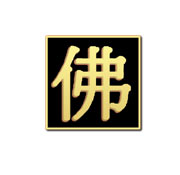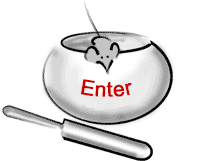On The Way: The Daily Zen Journal
Practice of Meditation
Dogen (1200-1253)
Truth is perfect and complete in itself. It is not something newly discovered; it has always existed. Truth is not far away; it is ever present. It is not something to be attained since not one of your steps leads away from it.
Do not follow the ideas of others, but learn to listen to the voice within yourself. Your body and mind will become clear, and you will realize the unity of all things.
What is truth? The truth is the reality of mind which is formless and pervades the ten directions. It is being used presently right before your eyes, yet people do not trust it sufficiently, so they accept terms and expressions, seeking to assess Buddhism conceptually in the written word. They are as far away as the sky is from earth.
The slightest movement of your dualistic thought will prevent you from entering the palace of meditation and wisdom.
The Buddha meditated for six years, Bodhidharma for nine. The practice of meditation is not a method for the attainment of realization-it is enlightenment itself.
Your search among books, word upon word, may lead you to the depths of knowledge, but it is not the way to receive the reflection of your true self. When you have thrown off your ideas as to mind and body, the original truth will fully appear. Zen is simply the expression of truth; therefore longing and striving are not the true attitudes of Zen.
To actualize the blessedness of meditation you should practice with pure intention and firm determination. Your meditation room should be clean and quiet. Do not dwell in thoughts of good or bad. Just relax and forget that you are  meditating. Do not desire realization since that thought will keep you confused.
meditating. Do not desire realization since that thought will keep you confused.
Sit on a cushion in a manner as comfortable as possible, wearing loose clothing. Hold your body straight without leaning to the left or the right, forward or backward. Your ears should be in a line with your shoulders, and nose in a straight line with your navel. Keep the tongue at the roof of the mouth and close your lips. Eyes are slightly open, and breathing is quiet through the nostrils.
Before you begin meditation take several slow, deep breaths. Hold your body erect, allowing your breathing to become normal again. Many thoughts will crowd into your mind; ignore them, letting them go. If they persist be aware of them with the awareness which does not think. In other words, think non-thinking.
Zen meditation is not a physical culture, nor is it a method to gain something material. It is peacefulness and blessedness itself. It is the actualization of truth and wisdom.
In your meditation you yourself are the mirror reflecting the solution of your problems. The human mind has absolute freedom within its true nature. You can attain your freedom intuitively. Do not work for freedom, rather allow the practice itself to be liberation.
When you wish to arise from meditation, move your body slowly and stand up quietly. Practice this meditation in the morning or evening, or at any leisure time during the day. You will soon realize that your mental burdens are dropping away one by one, and that you are gaining an intuitive power hitherto unnoticed.
There are thousands upon thousands of students who have practiced meditation and obtained its fruits. Do not doubt its possibilities because of the simplicity of the method. If you cannot find the truth right where you are, where else do you expect to find it?
Life is short, and no one knows what the next moment will bring. Open your mind while you have the opportunity, thereby gaining the treasures of wisdom, which in turn you can share abundantly with others, bringing them happiness.
Dogen (1200-1253)
Excerpted from Buddhism and Zen – Trans by Nyogen Senzaki and Ruth McCandless (1997)





This month we return to our roots, the essential points of a beginning meditation practice. Many are just beginning practice, and for those who have practiced for years, Dogen’s piece on meditation has points that even the “advanced” students have not mastered.
The reality for many is that they are practicing alone, far away from qualified teachers. For those of us who have had the good fortune to find a trustworthy teacher, we forget what this must be like to travel the Way alone.
Yet, ultimately, all true learning is done on one’s own. Hopefully we are fortunate enough to have teachers who don’t tell us too much!
Learning and Practicing without a Good Friend can be very challenging at times. There are many pitfalls to watch out for. Sometimes you will think that you know more than you really do; other times you think you know less than you really do. Sometimes we wallow in slackness, at other time Practice itself becomes choked off by excess tension. Finding the natural balance isn’t easy; and just when you do find it, things will change!
Even if you have the best friend and wisest teacher, you’re really on your own mostly anyway. You still need to navigate, keep your eyes open, constantly adjust your course, and explore for yourself. If you leave it all up to the teacher, you won’t learn much.
— Maverick Sutras
We begin freshly with meditation this year, and every day we will deepen our experience of life and practice.
Beginning Again,
Elana, Scribe for Daily Zen